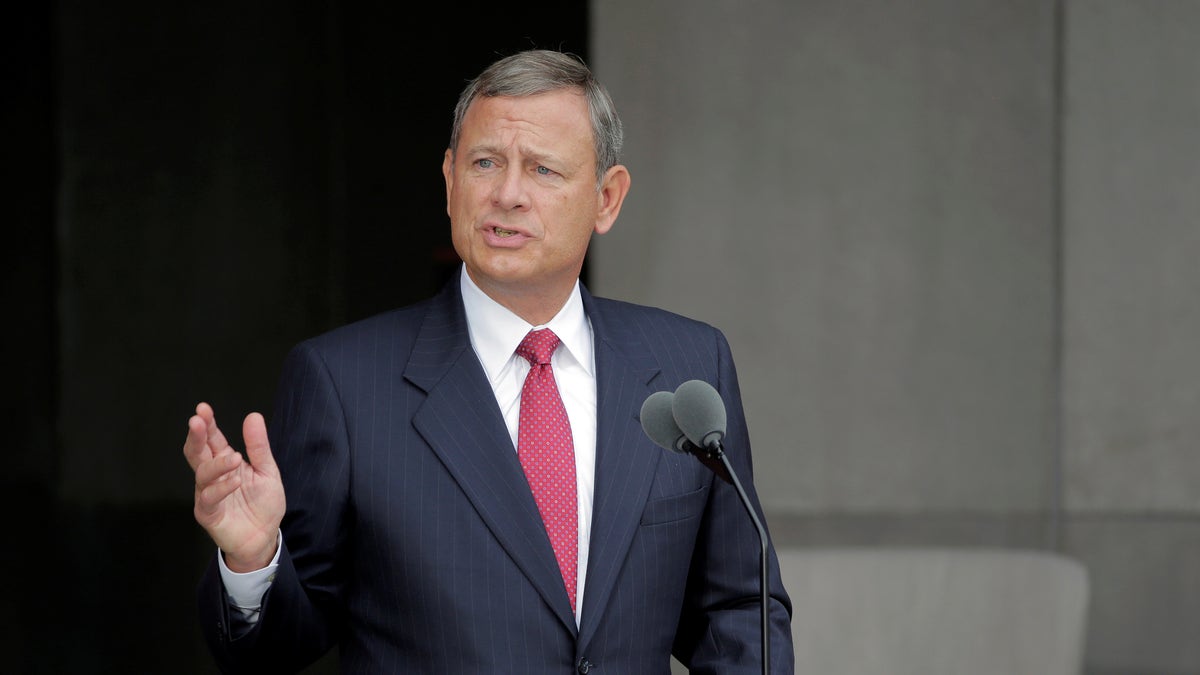Is Chief Justice John Roberts caving to political pressure from the mainstream media?
Carrie Severino, president of the Judicial Crisis Network, reacts to the court's 'frustrating decision' on Louisiana's abortion restrictions.
The Supreme Court's latest ruling on the Louisiana abortion law is a prime example of Chief Justice John Roberts' knee-buckling tendencies when pressured by liberal politicians and the mainstream media, Judicial Crisis Network President Carrie Severino said Tuesday.
In an interview on "Fox & Friends" with host Brian Kilmeade, Severino said that Monday's 5-4 decision labeling the law – which mandates individuals who perform abortions to have admitting privileges in a hospital – as unconstitutional was especially "frustrating" because Roberts contradicted himself.
SUPREME COURT STRIKES DOWN LOUISIANA LAW ON ABORTION CLINIC RESTRICTIONS
"Yeah, this is a frustrating decision especially because the chief justice just four years ago ruled that this type of a law was, in fact, constitutional. And, he claims to still be of that position," she said. "But, nonetheless, [he] ruled against the law yesterday and as Justice Thomas pointed out this case shouldn't even be in court."

Chief Justice John Roberts has an opportunity to wield new power on the Supreme Court, as the 'swing' justice in the wake of Anthony Kennedy's retirement. (Reuters)
June Medical Services LLC v. Russo is notably similar to a Texas law the court ruled was unconstitutional in 2016's Whole Woman’s Health v. Hellerstedt. Roberts had dissented in the 2016 case and said in a concurring opinion that while he still believes that the past case was wrongly decided, he was ruling with the majority in the present case due to court precedent.
"The legal doctrine of stare decisis requires us, absent special circumstances, to treat like cases alike," Roberts wrote. "The Louisiana law imposes a burden on access to abortion just as severe as that imposed by the Texas law, for the same reasons. Therefore Louisiana’s law cannot stand under our precedents."
Severino pointed out that, in this case, Roberts and the court "seem to have made an exception for abortion."
"Well, unfortunately, it’s become less and less of a surprise when the chief justice – in these high profile cases – strays from what his legal position might have been," she told Kilmeade, citing a recent ruling on the Deferred Action for Childhood Arrivals (DACA) program where Roberts appeared to have flipped sides.
"When you look at some of the political pressure being put on him, it seems that well on one side he pledged to call balls and strikes [and] at the same time, he seems to have a lot of pressure when he thinks the court is going to come under criticism from the mainstream media, from the elites. He tends to fold and not want to make those tough decisions," Severino said. "That’s a real concern and, unfortunately, it's a pattern."
CLICK HERE FOR THE FOX NEWS APP
According to Severino, who was Supreme Court Justice Clarence Thomas' clerk, Roberts did not have to actually overturn settled law to find in favor of Louisiana.
"You could have distinguished that case. You could have simply said, ‘the clinics aren't the right ones to bring this kind of argument.' Instead, the chief justice voted with the liberals to uphold a law that he acknowledges is not unconstitutional," she concluded.


